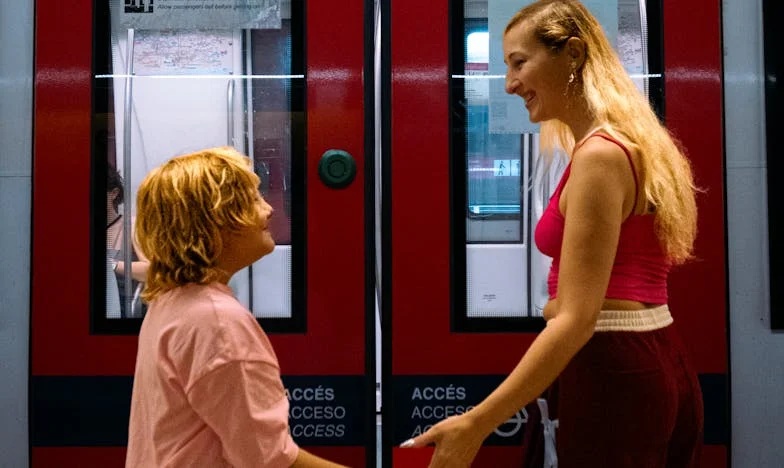When Love Isn’t Enough: The Day My Son Wanted to Give His Son Back
“Mom, I don’t think we can do this anymore. We’re thinking of returning Evan.”
Those words hit me like a punch in the gut. My son, Michael, stood in my kitchen, coffee untouched, hands shaking. His wife, Sarah, hovered by the window, eyes red and distant. Evan, just three years old, played in the living room with the toy fire truck I’d bought him last Christmas. I could hear him giggling, completely unaware of the storm brewing in the next room.
I tried to steady my voice. “Michael, you can’t just send him back. He’s your son now. He’s my grandson.”
He flinched, as if the word “son” burned him. Sarah whispered, barely audible, “We thought we could do this. But it’s so much harder than we imagined. He screams all night. He hits. Nothing soothes him. We… we’re failing him.”
I wanted to scream, to shake them and remind them of the years they spent wishing for a child. The fertility treatments, the hopeful baby showers, the endless tests and disappointments. The adoption process alone nearly broke them—interviews, home inspections, background checks, paperwork that never seemed to end. But the day they brought Evan home, their faces glowed with a hope I hadn’t seen in years.
But hope, I suppose, is fragile.
“He needs stability,” I said, more softly. “He needs you. He’s already lost too much.”
Sarah looked at me, hollow-eyed. “We’re not enough for him. We love him so much, but he’s angry all the time. I’m scared, Linda. What if we’re making it worse?”
That night, I couldn’t sleep. I lay in bed, replaying every visit, every time I’d watched Evan cling to me, or recoil from Michael’s touch. I remembered the time Michael called, his voice trembling, after Evan bit him so hard he bled. I remembered Sarah’s tears in the bathroom, her whispered prayers that Evan would just call her “Mommy” once. I remembered the social worker’s warning: “Trauma doesn’t just disappear because you love him.”
But I also remembered the first time Evan fell asleep in my arms, his tiny fingers tangled in my sweater. The way his eyes lit up when he saw the playground. The time he crawled into Michael’s lap after a nightmare, clutching him for dear life.
I knew, deep down, that Michael and Sarah were drowning. And I was terrified—terrified for Evan, for them, for our whole family.
The next morning, I found Michael outside, sitting on the porch steps, staring at nothing. I sat beside him, wrapping my arm around his shoulders.
“Talk to me, honey.”
He shook his head. “I’m so tired, Mom. I don’t know how to help him. I don’t know if I’m cut out for this. Maybe Evan would be better off with someone else.”
Anger flared in me, but I swallowed it. “Do you remember when you broke your arm in Little League? You wanted to quit baseball. You said you’d never play again. But you didn’t, because you had people who wouldn’t let you give up. Evan needs that. He needs you to fight for him, even when it’s hard.”
He looked at me, eyes wet. “What if I can’t? What if I’m not… enough?”
I pulled him close. “No one’s enough alone. But you’re not alone. Let me help. Let’s get help. Therapy, support groups—whatever it takes. Don’t give up on him. Don’t give up on yourself.”
For days, our house was a battleground of whispered arguments, tense silences, and tearful hugs. Sarah avoided me; Michael retreated into himself. Evan sensed the tension, his tantrums growing worse. One evening, he broke a lamp and hid in the closet for hours, sobbing.
That night, Sarah called me. “I can’t do this, Linda. I can’t be the mom he needs.”
I tried to keep my voice calm. “Sarah, you’re grieving. This is grief—for the child you imagined, for the life you thought you’d have. But real love is messy. It’s work. It’s not giving up, even when you want to.”
Her voice trembled. “What if he never loves us back?”
I took a deep breath. “You love him anyway. Because that’s what parents do.”
The next week was a blur of appointments—family therapy, pediatric consults, calls to the adoption agency. I went with them, held Evan while Sarah cried in the therapist’s office, listened to Michael talk about his guilt and fear. I watched, helpless, as my family teetered on the edge.
One night, after Evan finally fell asleep, Michael and Sarah sat at my kitchen table, their hands entwined. Michael’s voice was raw.
“We’re not going to give him back,” he said. “But we need help. A lot of help.”
Relief flooded me, but so did worry. There would be no easy solutions, no magic fixes. But there was resolve now, and that was something.
I look at Evan—my grandson, my heart—and I wonder how many families give up because they’re afraid to ask for help, or too ashamed to admit they’re struggling. Why is it so hard to talk about adoption when it’s not the fairy tale we want it to be? Why do we expect love alone to heal wounds that run so deep?
Have you ever faced a moment when you almost gave up on someone you loved? What made you stay—and what did it cost you?
